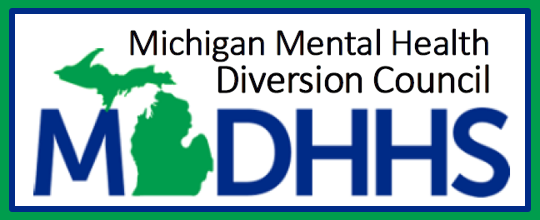Frequently asked questions
- What is AOT?
Assisted outpatient treatment (AOT) is a legal mechanism overseen by the civil court (probate court) for providing outpatient treatment to individuals living with serious mental illness (SMI) who, as a result of not adhering to treatment, are at risk for negative outcomes (e.g., suicide, harming others, being arrested). AOT works by compelling the recipient to receive personalized, specific treatment that can prevent their condition from worsening AND by holding their service provider accountable for providing the treatment.
- What kinds of services are included in an AOT order?
A wide variety of services can be a part of an AOT order, but it will vary by person and County, as the services that are ordered need to be available and appropriate.
Services include:
- Case management.
- Medication (often via long-acting injectable [LAI] formularies).
- Lab tests to determine medication adherence/efficacy.
- Outpatient therapy (individual and/or group).
- Day or partial-day programs.
- Educational or vocational training.
- Supervised living (e.g., group homes).
- Assertive Community Treatment (ACT, FACT teams).
- SUD testing and/or treatment.
- Other services at the court's discretion that can prevent relapse or deterioration of the individual's health.
Note: services related to mental health recovery can also be ordered, including substance use treatment, housing assistance, and employment assistance. The CMH is responsible for service delivery, whether that be through their internal programs and services, or through their contracted service providers.
- How long does an AOT order last?
An initial AOT order can last up to 180 days, though orders can be extended if the treatment team (including the individual) and the court believe it is beneficial for the individual.
- How is adherence to an AOT order enforced?
Ideally, the individual’s case manager will be the primary contact for concerns over AOT adherence. It is imperative that the treatment provider find a way to engage the member. If the individual is not voluntarily coming into treatment, and it is incumbent upon the treatment provider to creatively find ways to engage them. An AOT order requires treatment and does not allow for people to choose not to receive services. Family/ friends should reach out to the individual’s case manager if they are concerned about the person’s adherence to treatment. If efforts to reach the case manager are unsuccessful, the concerned party can file a notice of non-compliance (PCM 230) with the court. For case managers, if an individual is not adhering to their treatment plan, their case manager should first try to engage them directly and/or through other contacts before filing a notice of non-compliance (PCM 230) with the court. At that point, an Order for Examination/Transport (PCM 209a, often referred to as a “transport order”) may be employed to facilitate reassessment of the individual at a designated screening location. From there, modifications to the order can be recommended to the court if necessary.
- Is AOT part of the criminal court system? What about mental health court?
No. AOT is not a criminal matter. Unlike mental health courts, where an individual who has been charged with a crime can avoid jail by adhering to treatment, individuals on an AOT cannot be incarcerated for not adhering to treatment.
Some criminal courts have mental health courts. AOT is different than mental health court in that unlike mental health courts, where an individual who has been charged with a crime can avoid jail by adhering to treatment, individuals on an AOT cannot be incarcerated for not adhering to treatment.
- Who is responsible for providing services for someone on an AOT order?
The county’s Community Mental Health agency is responsible for providing and/or coordinating the services ordered on an AOT.
- When someone is on an AOT order, do they lose all their rights?
No, individuals under assisted outpatient treatment orders still have rights. Visit the Office of Recipient Rights online to learn more.
- What is an AOT program, or system of care?
An AOT program exists when a county designates specific staff with specialized roles to provide management and oversight of AOT orders. ‘System of care’ refers to the multidisciplinary actors who have a role to play in the AOT process (e.g., the CMH providers, the probate court, inpatient psychiatric hospitals).
- Is AOT the same as guardianship?
No. Assisted outpatient treatment is different than guardianship in many ways, most notably, AOT orders are time-limited, and the expectation is that people on an AOT will be able to function independently once they are adhering to treatment. To learn more about when guardianship versus AOT criteria, click here.
Do you have a question that isn't answered? Ask us here!
Use this form to ask a question about assisted outpatient treatment.
